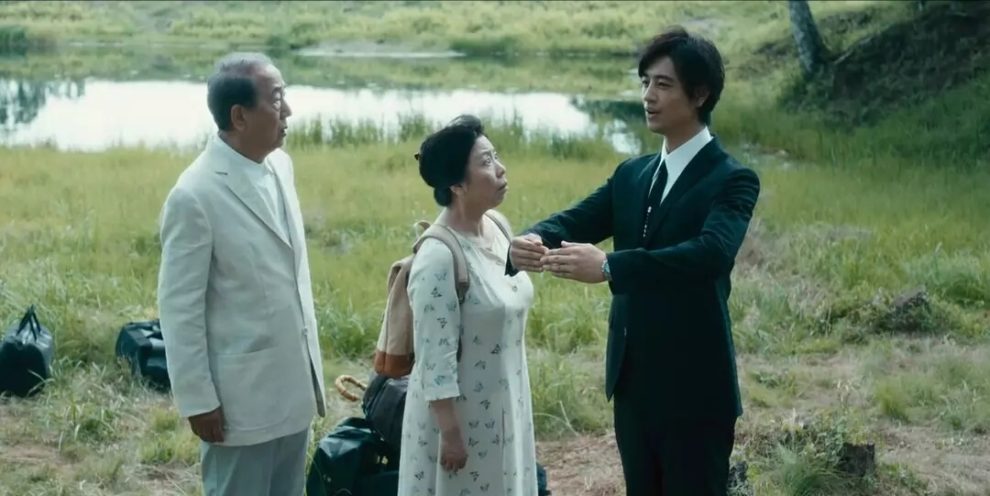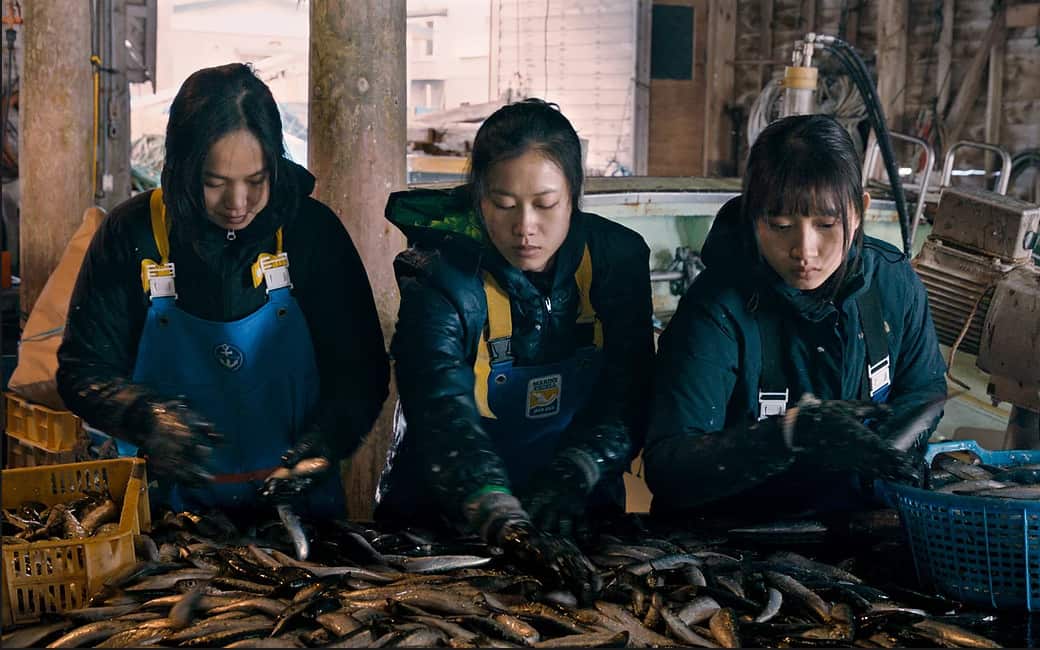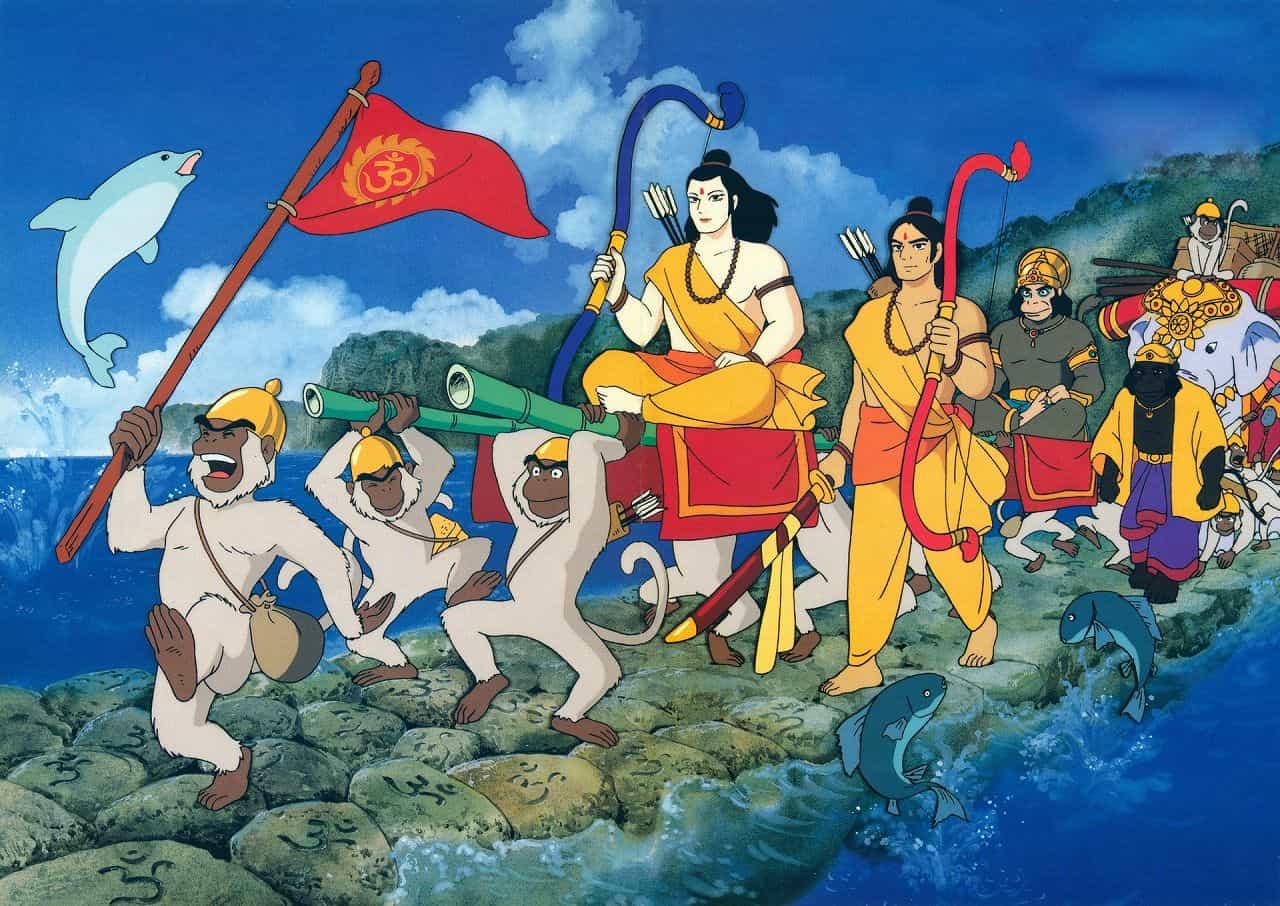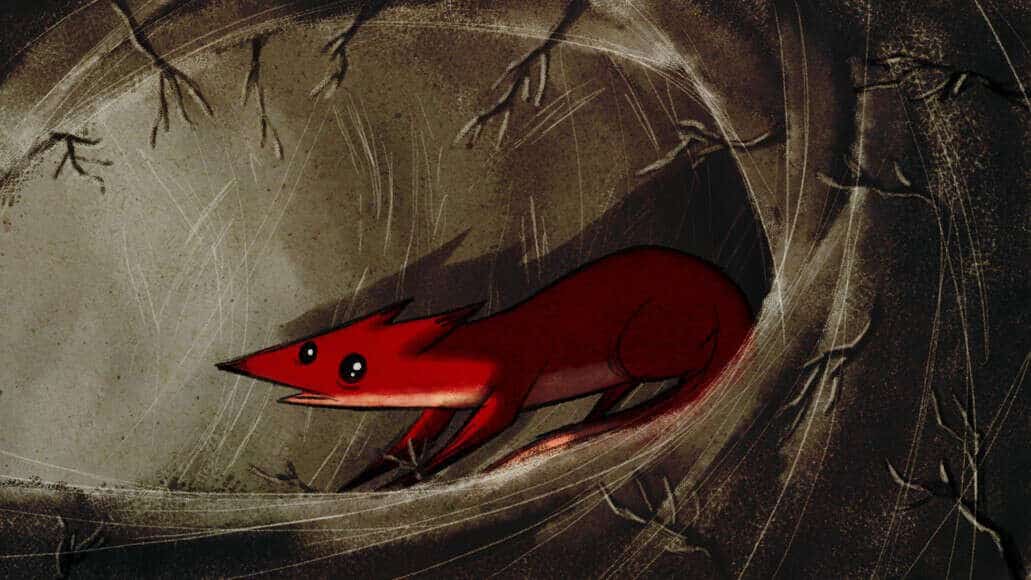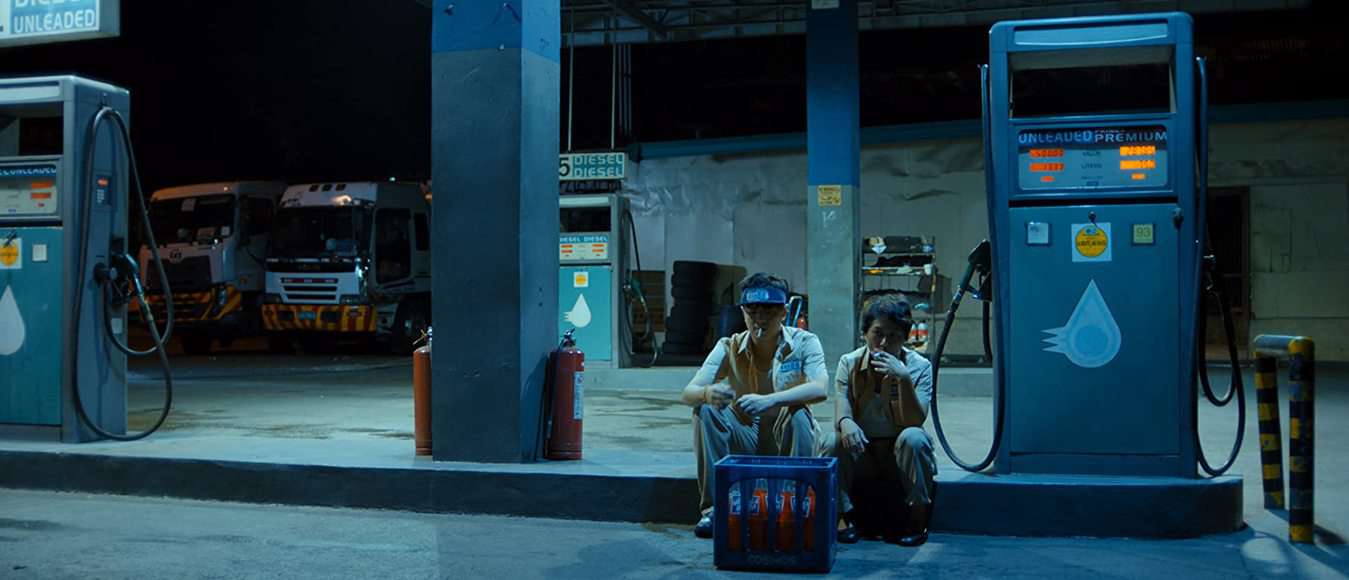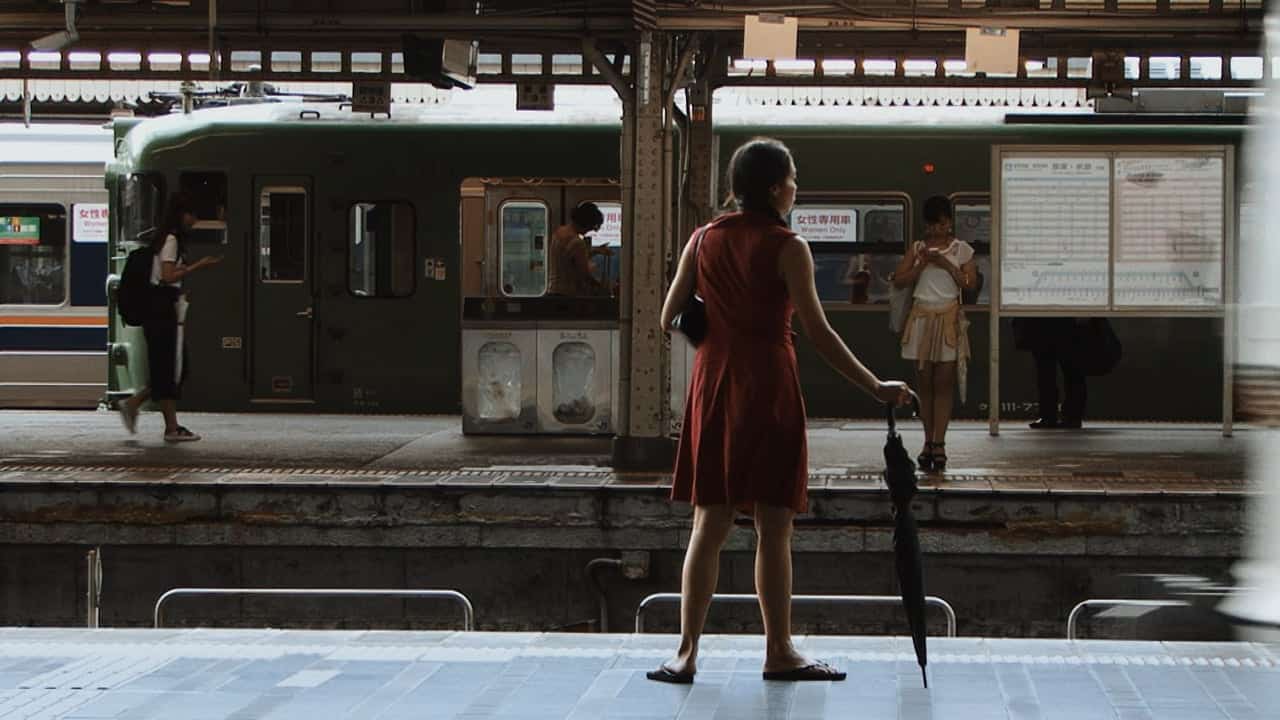It seems like over the course of his career, Junji Sakamoto is unwilling to fully assign himself to a certain type of filmmaking. Superficial, but gripping commercial films about masculinity and nationalism like “Knockout” (1989) and “Aegis” (2005) are opposed to melancholic (“Out of this World” 2004) and even comical works (“I Never Shot Anyone” 2020). Proceeding the Che Guevara biopic “Ernesto” (2017), Sakamoto put out a rather weird sci-fi comedy called “The Projects”.
The Projects is screening at Japan Society

The Osaka-born director returns to his hometown to tell the story of the freshly moved in retiree couple Hinako (Naomi Fujiyama) and Seiji (Ittoku Kishibe), who used to run a herbal pharmacy. Their new home is in a so-called Danchi (“Project”), which were mainly built from the 50s to 70s as public housing by the government. Here, a close-knitted community, who is eager for gossip, awaits them. The chatter is fueled by Seiji's disappearance. Was he killed? And what role does the young man play, who orders herbal tea for 5000 of “his people” from them?
Different from Sakamoto's ostentatious Hollywood-like productions, “The Projects” is bound to a smaller scale of cinematic expression. Focused on the apartment block and the almost isolated neighborhood, the main characters try to find a new purpose in life and to fit in the environment. In particular, Seijo fails in doing so, since he cannot stand the pressure of the Danchi lifestyle and ultimately hides away underneath the floor, letting everyone believe he passed away. Naturally, his cover-up evokes a certain amount of absurd comedy and Ittoku Kishibe (“Survive Style 5+”) is made for this persona. Carried by nihilistic dialogue and cinematographer Ryo Ohtsuka's (“Romance Doll“) unusual way of shooting scenes (e.g. high angle/over the head shots), a strong sense of ambiguity can be felt throughout the film.
This is further topped by the appearance of a weirdo named Shinjo (Takumi Saitoh), who used to be a regular at the herbal pharmacy and is now in desperate need of their products. It is only until the very end that his and “his people's” true identity is revealed. The disclosure marks the big bang at the end of the narration, giving the movie a superhuman touch.
Since “The Projects” is very much based on the individual skills of the cast, the ensemble has a huge impact on how the audience receives the film. Luckily, all of the actors are fit for their roles and do not disappoint. Besides Ittoku Kishibe, Naomi Fujiyama, who also played in Sakamoto's highly-acclaimed “Face” (2000), contributes a lot of passion to her character. Her effort was rewarded with the Best Actress Award at the Shanghai International Film Festival.
Overall, Junji Sakamoto starts his plot with the old couple, who tries to cope with a new stage of life. Retirement, finding a purpose in life, and on top of that, building new friendships and a social network. What could have been a social or heart-warming drama about old folks turns into silly science-fiction, denying the great cast a proper share of dignity at the end. Looking at Junji Sakamoto's roots this may be not so surprising after all. Picking up his skills as the assistant of Gakuryu Ishii (“Crazy Thunder Road” 1980) and Kazuyuki Izutsu (“Pacchigi!” 2006) Sakamoto learned how to mix up seriousness with craziness. Despite his blockbuster flicks, which appeal to a mainstream target group, “The Projects” resembles one of the seldom outbreaks back into the world of weirdness.


